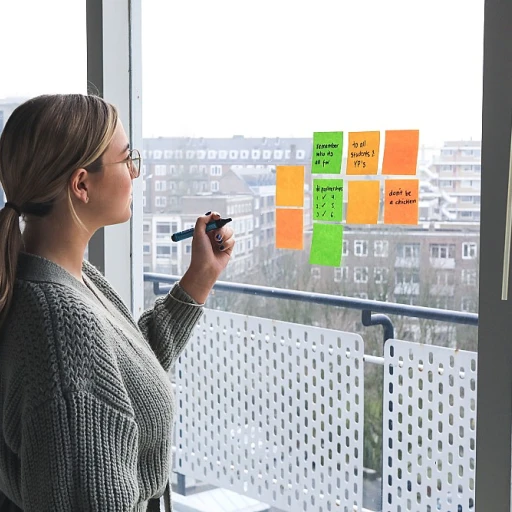
Understanding Service Excellence
Grasping the Core of Service Excellence
In today's competitive business landscape, understanding the essence of service excellence is crucial for any organization aiming to thrive. At its heart, service excellence is about consistently providing exceptional customer experiences that not only meet but exceed expectations. This involves a deep commitment to understanding customer needs and delivering value through every interaction.
Service excellence is not just a buzzword; it's a strategic approach that requires a blend of skills, training, and a customer-centric mindset. Businesses that excel in this area often see higher customer satisfaction, increased loyalty, and a stronger reputation in their industry.
To achieve this level of excellence, organizations must focus on several key areas:
- Customer Understanding: Knowing your customers is the first step towards providing excellent service. This involves gathering data through customer interactions and using analytics to tailor services to their needs.
- Communication Skills: Effective communication is essential in ensuring that customers feel heard and valued. Training team members in these skills can significantly enhance customer experiences.
- Continuous Learning: The business environment is ever-changing, and so are customer expectations. Continuous learning and upskilling are vital for staying ahead. This includes enrolling in service training courses and keeping up with the latest trends in customer service.
For more insights on the foundational traits that contribute to service excellence, you can explore understanding the key traits of a completed increment.
Identifying Key Skills for Service Roles
Essential Skills for Excelling in Service Roles
In delivering exceptional customer experiences, identifying the right set of skills is crucial. While technical know-how holds importance, certain core competencies are indispensable for achieving customer satisfaction. Communication skills take precedence in service training. Being able to convey information clearly and effectively is key to understanding customer needs. This also includes listening actively and empathetically to customer interactions which are essential elements of a stellar service experience. Courses focusing on service essentials often include modules on enhancing these skills. Business and professional acumen are equally critical. Those adept at navigating customer service situations with composure and strategic thinking can transform interactions positively. This also involves comprehending the strategic goals of the team and aligning personal efforts to meet these objectives. Understanding customer behavior and needs is vital. A solid grasp on this helps to tailor solutions that enhance the overall customer experience. This is where data analytics comes into play. Comprehending patterns and insights from data provides a more informed approach to meeting customer expectations and improving service strategies. Training in social media proficiency is becoming increasingly important. With more businesses interfacing with customers through these platforms, understanding the dynamics of online interactions is a key skill. With a comprehensive understanding of these skills, team members provide excellent customer service experiences. For those looking to refine their abilities further, consider how enhancing your skills with a performance coach can contribute to personal and professional growth. Incorporating these skill sets into regular learning paths will not only fortify an individual's professional capability but will significantly uplift the overall service excellence within a business.The Role of Upskilling in Service Excellence
Unlock the Power of Upskilling
Upskilling plays a crucial role in achieving service excellence within any business framework. It goes beyond mere training, emphasizing a more profound understanding of customer needs and the dynamics of customer interactions. In an environment where providing excellent customer service is the cardinal rule, enhancing your team members' skills is non-negotiable.
Service professionals face varied scenarios daily, and upskilling helps them navigate these complexities efficiently. Whether through an essentials course that refines communication skills or accessing service training centered around data analytics, the distinction lies in equipping your team to adapt and respond proactively.
Enhancing Customer Experiences
In both internal and external customer service spheres, delivering exceptional customer experiences is directly linked to how well your team is geared upskill-wise. Engage your team with well-structured video content, interactive courses, and dynamic environments where real customer calls are simulated. This immersive learning approach boosts customer satisfaction and inspires confidence in handling intricate scenarios, paving the way toward excellence.
Tailored Training for Success
A one-size-fits-all methodology might not suffice for optimal customer service performance. Recognize each team member's current capabilities and tailor learning solutions that align with specific service roles. For some, it might entail a deeper dive into social media interactions; for others, it could be mastering the service essentials of an exceptional customer experience. Providing courses with flexible subscriptions ensures continuous growth and helps your team learn at a pace that suits them best.
As businesses evolve, so must the acumen of their teams. Harnessing the potential of targeted training strategies and developing skills fundamental to service roles ensures that the essence of outstanding service is continually refreshed and aligned with contemporary demands.
Effective Upskilling Strategies
Developing a Tailored Training Approach
When it comes to service excellence, upskilling requires a methodical approach that aligns with business objectives and employee needs. A tailored training plan can make all the difference in nurturing the essentials of customer service that lead to exceptional customer experiences.
One strategy is to focus on communication skills. Effective communication is a cornerstone of customer satisfaction. Courses focusing on verbal and non-verbal communication, active listening, and empathy can greatly enhance customer interactions.
Leveraging Online Learning Platforms
Another effective strategy is to harness the power of online learning platforms. Businesses can offer a variety of courses, allowing team members to learn at their own pace. This flexibility can be crucial for developing specific service skills. Many online platforms offer a subscription model, where team members can access service training, data analytics, or social media management courses anytime they need.
- Interactive video content: Provides engaging ways to absorb the material.
- Real-life scenarios: Help team members understand customer expectations and experiences better.
Encouraging Peer-to-Peer Learning
Encouraging peer-to-peer learning within the organization can significantly enhances service skills. This involves team members teaching each other, sharing insights and tips about handling both internal and external customer interactions. Not only does this foster a collaborative environment, it also reinforces key skills necessary for excellent customer service.
Utilizing Data Analytics to Guide Training
Data analytics can be instrumental in identifying areas where upskilling is needed the most. By analyzing feedback and performance data, businesses can tailor their training to address specific weaknesses and capitalize on strengths. This targeted approach ensures that the training aligns with the core goals of providing excellent customer service and understanding customer needs better.
Overcoming Challenges in Upskilling
Navigating the Hurdles of Upskilling in Service Roles
Upskilling in the realm of service excellence is a journey that everyone in the business, from team members to customer service pros, ought to embark on. However, like any voyage, it comes with its fair share of obstacles. Understanding these challenges intimately can significantly enhance your success. First and foremost is the challenge of balancing ongoing customer interactions with training. Team members are often stretched thin between providing exceptional service and engaging in service training. This can lead to burnout if not managed well. Therefore, a flexible learning pace is crucial, allowing team members to fit skills training seamlessly into their schedule without compromising customer satisfaction. Another common hurdle is access to quality course content and training materials. Opting for a well-structured service essentials course is essential. Resources such as video content and experiential learning activities should be included to engage team members effectively. Ensuring that the course aligns with the existing skills and communication needs of your team enhances the learning experience. Overcoming resistance to change is another significant challenge. Upskilling involves adopting new service strategies, perhaps ones that include the use of data analytics or social media for enhanced customer experiences. When team members understand the direct impact of these new skills on customer satisfaction, they become more open to change and willing to engage in training. Furthermore, measuring the effectiveness of the training programs often poses a challenge. Businesses need to identify clear metrics and KPIs to evaluate the impact on customer experience and service performance. The goal is to foster an environment where learning is part of the team culture, leading to consistent delivery of excellent customer service. Effective upskilling strategies play a pivotal role in overcoming these challenges. Businesses need to invest in high-quality training programs that are not only informative but also adaptable to various learning styles. By doing so, you pave the way for a more skilled, motivated, and exceptional customer service team.Measuring the Impact of Upskilling on Service Performance
Determining the Influence of Skill Enhancement on Service Output
Assessing how effectively upskilling influences service performance is crucial for any business aiming to enrich customer experiences. The focus on refining customer service essentials and bolstering communication skills through tailored learning modules play a pivotal role in shaping positive customer interactions. Developing strong service skills requires periodic evaluation, which can reveal improvements in both individual and team effectiveness.- Key Performance Indicators (KPIs):
- Customer Feedback Analysis:
- Internal and External Reviews:
- Utilizing Data Analytics Tools:
- Team Progress Meetings:













